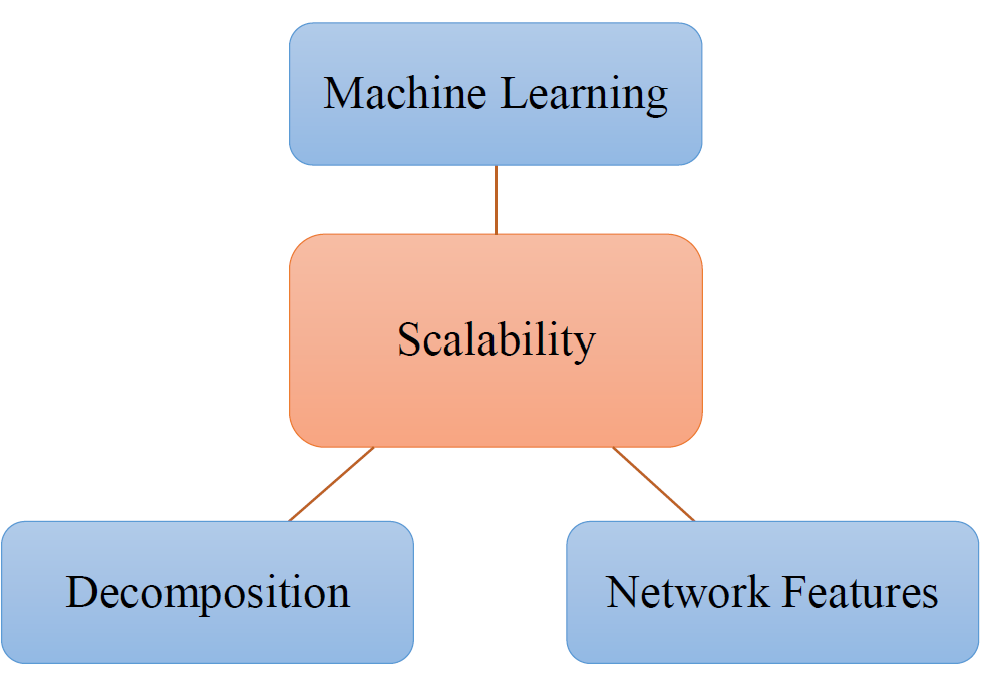Scalable Learn-to-Optimize Algorithms for Networks
Background
Large-scale networks can adequately capture the structure of complex systems containing thousands of nodes (e.g., cyber-physical-social components) and edges (e.g., mutual interactions). Therefore, network optimization methods have become a popular approach for addressing combinatorial optimization problems in various application domains. The majority of problems are formulated as Mixed Integer Programming (MIP) models, which become NP-hard resulting from the exponential increase in the number of decision variables and the unique structure of the feasible region for large-scale problems. To overcome the computational challenges, leveraging the valuable information during the search process to embed well-informed machine learning methods in optimization algorithms has emerged as a promising research area.

Objective
This research seeks to develop scalable Learn-To-Optimize algorithms for deterministic and stochastic formulations of MIP models concerning large-scale networks. We use a set of benchmark problems and multiple city-scale networks to demonstrate the added value of our approach compared to baseline optimization algorithms in terms of solution quality, convergence rate, and computational time.
Publications
- Aslani, B., Mohebbi, S., Ougthon. E. (2024). “A systematic review of optimization methods for recovery planning in cyber-physical infrastructure networks: current state and future trends”, Computers & Industrial Engineering, 192, 110224. https://doi.org/10.1016/j.cie.2024.110224
- Aslani, B., Mohebbi, S., (2024). “Learn to decompose multi-objective optimization models for large-scale networks”, International Transactions in Operational Research, 31(2), 949-978. https://doi.org/10.1111/itor.13169
- Aslani, B., Mohebbi, S., (2024). “A Learning-Augmented Branch-and-Price for Large-scale Integrated Network Design and Scheduling Problem in Road Restoration”, INFORMS Transportation Science [Under Review].
Funding Source
Air Force Research Laboratory, AFCENT (2023-2025), Co-PI, $4,650,300.
Center for Resilient and Sustainable Communities, George Mason University (2021-2023), PI, $31,640.
GRA
Pavithra Sripathanallur Murali (PhD Student), Graham Hulsey (MSc student), Christopher Wilson (Undergraduate Researcher)
